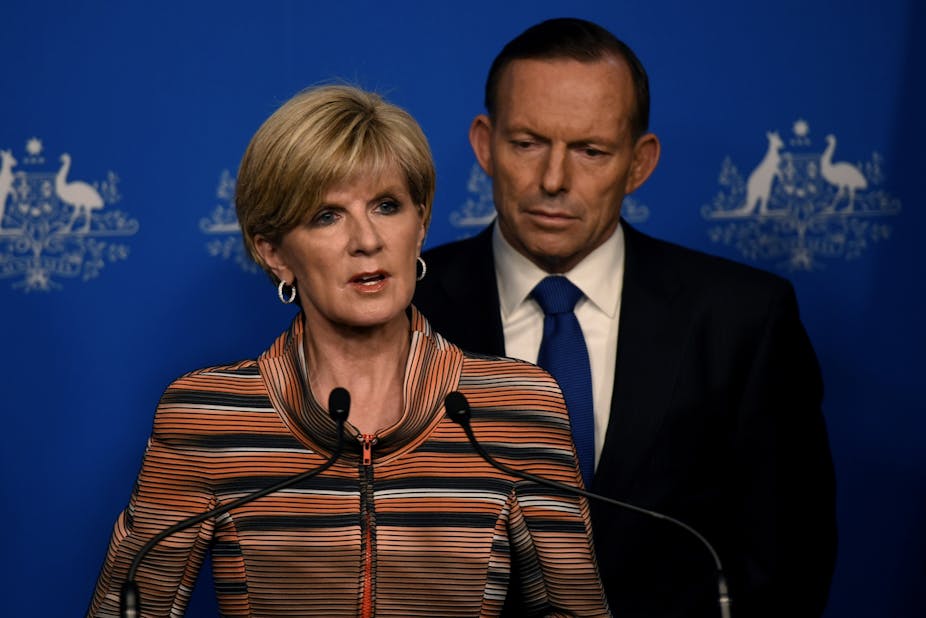“There is no such thing as the national interest,” I tell my first-year Australian foreign policy students.
This tends to stop them in their tracks. After all, if there is no such thing as the national interest, how can they – as ardent future policy makers and thought leaders – go about constructing sensible foreign policy futures?
Unfazed by 420 concerned stares, I continue:
When you argue for a particular policy, you can put forward ideas about morality or strategy, present facts and figures, precedents or philosophical arguments. But you may not simply assert that a particular policy is or isn’t in the national interest. Before you do that, you must tell me what the national interest is.
Who gets to decide the national interest?
Of course, to claim that the national interest is a fiction is somewhat of an obfuscation. But to state, as our politicians do, that there is an objective and irrefutable national interest “out there” is far more dangerous. It takes the responsibility for shaping the national interest out of our hands – and puts it firmly into the hands of those in power.
Foreign Minister Julie Bishop seems unwilling to entertain the idea that the national interest might be open for debate. For instance, on August 27, asked whether Australia might consider providing arms to Kurdish Peshmerga forces, the minister responded: “We would only act in our national interest.” As if by simply stating so, it were a fait accompli.
Minister Bishop’s full response moved, without skipping a beat, to the argument that the Australian intelligence community required greater legal latitude to fulfil its duties. She declared:
Our national interest is to ensure that Australians can be as safe and secure as the government can achieve, and that’s what we’re seeking to do with the changes in the law. That’s why we want the support from the crossbenches, from the opposition, to ensure that we can make the environment in Australia as safe as possible.
This kind of response is problematic in two ways. Most obviously, it muddies the political waters by indirectly conflating changes to the funding and operation of Australian intelligence with Islamic State operations against the Kurds – a political side-step that is relatively easy to recognise.
More alarming is the attempt to avoid answering the question altogether. Instead, thoughtful debate is substituted with the assertion that, whatever the government decides, it will be “in the national interest”.
A device for avoiding debate
Once again we have seen bipartisan support for the sidestepping of parliament on the question of committing Australian troops abroad. When Greens leader Christine Milne tried to force an urgent parliamentary debate on Australia’s proposed military involvement in Iraq, both major parties blocked the motion. Instead, they supported the idea that such decisions should stay firmly in the hands of the executive.
The idea that foreign policy is an elite decision-making arena, beyond the ken of the average Australian, and should not be submitted to the vagaries of parliament, is one that serves governments well. Labor in opposition knows it too will benefit from such a formulation when in power. It is in the opposition’s interest to continue the myth.

It is not clear why foreign policy is still considered something apart from the general public. In 2014, Australians have access to news and opinions from around the world. This allows them to develop informed viewpoints about the practical and ethical implications of foreign policy decisions.
Why should complex legislation regarding carbon trading regulations be considered by parliament and not questions of national security? The argument that intelligence briefings provide the clarity required to inform such decision-making is a smokescreen. We learned this back in 2003, after we had been told that reliable and sensitive intelligence pointed to the possession of weapons of mass destruction in Iraq.
When we submit to these arguments, we sacrifice exactly the democratic values we profess to defend. A functioning and responsive parliament is at the core of this.
The Australian public deserves to be part of the conversation. Once troops are committed, it is difficult for politicians to properly represent the views of their constituents, for fear of appearing to denigrate the work of those Australians putting their lives on the line. It is imperative that we allow such opinions to be aired – through the democratic mechanisms we are so fortunate to have at our disposal – before we embark on military adventures.
We need to put aside the idea that it is possible to create objective policy in the name of the national interest – for the national interest itself should be decided by the community whose interest it is.
As far as it is something real, national interest is a product of the political, social and cultural meaning we give it. My first-year students understand this, and I’d bet that most Australians would too, given half the chance.

